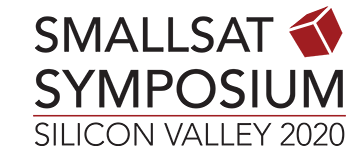

This session is a chance for startups to put their best foot forward for a 4 minute maximum summary of what their company does. The moderator will then ask them 2-4 questions so the total time on stage should be under 7 minutes per company. The audience will then vote up or down for whether they think the startup will succeed. We are inviting a maximum of six startups.
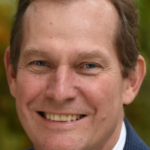 Bryan Benedict
Bryan Benedict
Dr. Bryan Benedict serves as Senior Director of Innovation & Spacecraft Programs at SES Government Solutions. During his career, he has worked extensively within both the DoD and US Civil Agencies to socialize the advantages of hosting imaging payloads on commercial spacecraft. Additionally, Dr. Benedict has been a key advocate in the commercial industry for the use of space robotics for both recovery and life extension of geosynchronous satellites.
Prior to his current position, Dr. Benedict served as the Product Line Manager for Commercial and Civil Hosted Payloads at Intelsat General Corporation, Director of Hosted Payloads at Intelsat, Director of Engineering for Satellite Bus & Launch Service Acquisitions at PanAmSat and was a System Engineering Manager at Hughes for the BSS601HP product line.
Dr. Benedict started his career as a chemical engineer in the petroleum industry – inventing and patenting several catalysts still used for the stabilization of jet fuels. Dr. Benedict earned his Ph.D. from the University of Wisconsin in 1986, where he conducted research on the stabilization of high energy materials within crystalline lattices.
Dr. Benedict has been awarded a number of patents throughout his career – the latest for delivery of microsatellites to orbit piggybacking on the nadir deck of geosynchronous communication satellites.
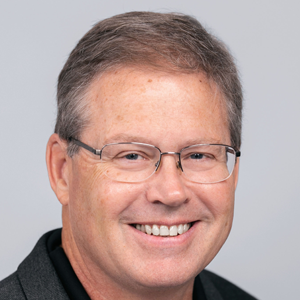 Brent Abbott
Brent Abbott
Brent is the CEO of the newly formed NanoAvionics US Inc. and is in charge of standing up the US office and factory as well as securing new business in the US and Latin America. Before joining NanoAvionics, Brent was the CEO and head of North American operations for AAC/Clyde Space. Prior to that, he held several senior roles at Surrey Satellite Technologies US (SST-US), where he was instrumental in landing the joint US-Taiwanese COSMIC-2/Formosat-7 constellation and payload supplier for the NASA CYGNSS constellation. He also started the hosted payload program at SST-US with the first all commercial hosted payload satellite OTB-1 (Orbital Test Bed) leading to >$80 Million revenue of follow-on business with OTB-2 and 3. Prior to joining Surrey in 2008, Brent served as a business development manager at Honeywell Defense & Space for 8 years and also invented their new Miniature Momentum Control System using Control Moment Gyros. His background also includes work as an engineer at Honeywell Commercial Aviation. Abbott is a registered professional engineer and graduated with a Bachelor of Science degree in electrical engineering from Iowa State University.
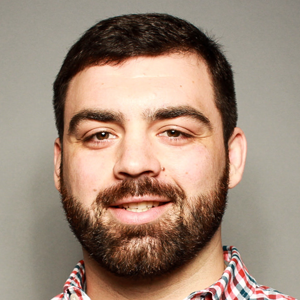 Kyle Flanagan
Kyle Flanagan
Kyle Flanagan is the Founder & CEO of Prime Lightworks Inc. Founded in 2015, Prime Lightworks has raised $1.8M seed funding and is a member of Y Combinator, Greentown Labs, Cleantech Open, and Starburst Accelerator. The company presented their abstract, “Measurement Error Analysis of Impulsive Thrust from a Closed Radio-Frequency Cavity in Vacuum”, on August 7, 2019, at SmallSat Conference, and launched their Regulation Crowdfunding campaign on StartEngine on December 20, 2019. Their goal is to enable renewable interplanetary space travel — while eliminating emissions, cost, and waste from aerospace propulsion.
Flanagan worked at SpaceX as Electromagnetic Interference (EMI) & Survivability Engineer from 2013 to 2015. During that time, his responsibilities included power systems and electromagnetic compatibility; grounding, bonding, and shielding; and lightning, welding, and ESD control programs for Falcon launch vehicle and Dragon spacecraft. His prior research includes an internship with Harvard University for CERN ATRAP Antihydrogen Research and a fellowship with Caltech for NASA JPL Frequency & Timing Advanced Instrument Development Group. Flanagan graduated with a Bachelor of Arts in Physics from Harvard University and was selected for Forbes 30 Under 30 Class of 2020 in Science.
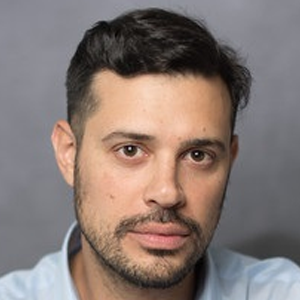 Marcos Franceschini
Marcos Franceschini
Marcos Franceschini, a spacecraft engineer turned entrepreneur, currently serves as CEO at Skyloom Global. 25 years ago, Space hooked him when he was exposed to the history of the Apollo program and decided to dedicate his professional career to this industry. He spent the last decade building Telecomm and remote sensing spacecraft and 3 years ago, he realized that there was a lack of infrastructure to transfer large volumes of data from Space to Earth, without which the future of the constellations would be compromised. Then he started his own company, Skyloom, with the main objective of implementing the first commercial spaceborne network relying on lasercomms and geostationary relay satellites to drastically increase bandwidth for low-Earth orbit satellites.
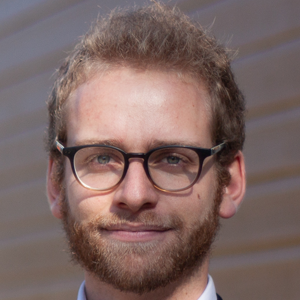 David Henri
David Henri
David holds an engineering and corporate strategy degree from Ecole Polytechnique, the leading university for science in France. He completed his education with a Master Degree from the University of Cambridge in Industrial Systems, Manufacture and Management. David has experience in the French Air Force and has been working at Swiss Space Systems, a New Space start-up which designed a suborbital launcher for small satellites. He had an engineering role in the Propulsion department. He then worked in a Corporate Venture Capital (ENGIE New Ventures). David founded Exotrail in 2015. The company has the mission to provide agility to space, with miniaturized electric propulsion systems and mission design & operation solutions for small satellites. Exotrail now employs more than 20 people in Paris region and in Toulouse and has raised more than 6M€ to date. David is President & CEO of Exotrail and leads Exotrail’s vision and global execution.
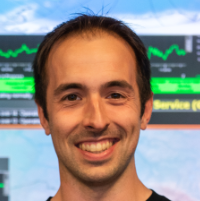 Brian Manning
Brian Manning
Brian Manning is co-founder and CEO of Xona Space Systems, a startup focused on advanced GNSS from Low-Earth Orbit. He holds an MBA from the London Business School and an MSc in Aeronautics and Astronautics from Stanford University. Brian has held positions as an Engineering Manager at Power Solutions International and more recently was the Responsible Engineer for the Falcon 9 rocket thrust structure at SpaceX.